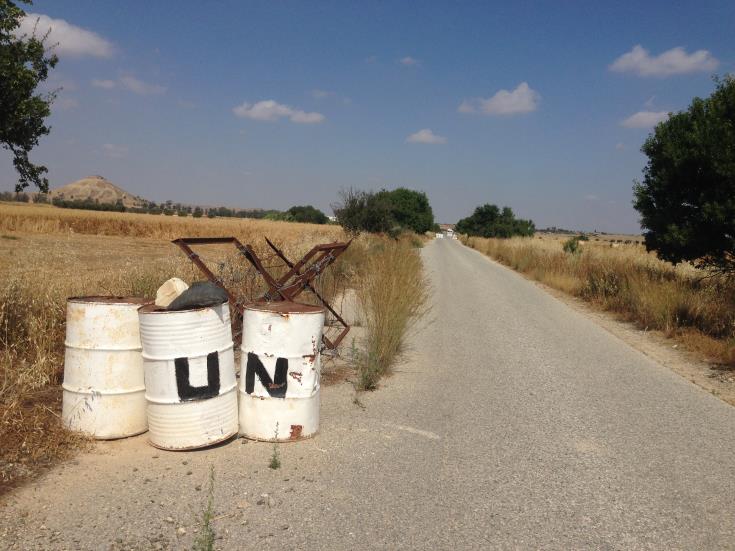By Andria Kades and Iole Damaskinos
President Nikos Christodoulides on Wednesday branded as “unacceptable” statements by Hezbollah leader Hassan Nasrallah, who has called on Lebanon’s authorities to open the way for Syrian arrivals to Cyprus.
“It is unacceptable. There is no other way to describe this,” Christodoulides told a pool of reporters after an event in Nicosia.
Nonetheless, he stressed “we will deal with this huge challenge.” Inspections have increased although he noted monitoring in the buffer zone had been upped before Nasrallah’s contentious statements.
Asked whether he was concerned after the developments, Christodoulides said “we will do whatever it takes to deal with this huge challenge.”
Meanwhile, Justice Minister Marios Hartsiotis said the increased measures along the ceasefire line are due to the information evaluated.
Speaking after a cabinet meeting, he highlighted migration is one of the three issues which the government is “seriously and daily” concerned with, along with terrorism and organised crime.
Specific measures are being adjusted accordingly, after daily evaluation of information, he added, noting that this was something that has been stated repeatedly.
“Within this framework, an evaluation of relevant information was made and, yes, the measures along the Green Line have been strengthened,” Hatsiotis said.
Asked about migrant flows from Lebanon, the minister specified he did not yet know and could not go into detail about this issue, noting however, that so far, there has not been much mobility.
Nevertheless, he added, this did not mean that daily preventive measures would not be taken as deterrent in seeing such flows as observed in the past.
Earlier in the day, police spokesman Christos Andreou told the Cyprus Mail contracted special constables (CSCs) and members of police buffer zone patrols have been instructed in their new duties as part of a “re-assignment which happens at regular intervals” to cope with general migration flow through the buffer zone, and was not specifically targeting Syrian refugees.
However, interior ministry spokeswoman Margarita Kyriakou when contacted, reiterated that migration from African countries – which was traditionally via the buffer zone – has been and continues to be “drastically reduced”.
The goal is to increase the number of officers who monitor three buffer zone areas in Nicosia, which the authorities have determined likely to be the focal points for any increased flows.
The new measures to guard known routes for illegal entry have been in full force since Monday evening, with several CSCs and police officers having been relocated.
According to sources, the new plan for guarding the entrances to the Republic is so strict that there is no time gap between the 12-hour alternating shifts.
Meanwhile, the operation to prevent new migration flows from Lebanon by sea is also in full swing, in the wake of the leader of Hezbollah’s call, in order to put pressure on Europe to negotiate a reconstruction deal with the Syrian government, and lift sanctions against that regime.
Following the Islamist leader’s remarks the coast and national guard are in a state of heightened vigilance and are operating boat patrols in international territorial waters off Lebanon.
Cyprus introduced the sea patrol measure in mid-April when two police vessels were deployed to patrol about 30 nautical miles from the Lebanese coast. The patrols have since been involved in one serious incident involving the pushback of five migrant boats attempting to reach Cyprus.
It is recalled that in a bid to counter increased migration, the state has also placed a 21-month freeze on the processing of Syrian migrants eligible for automatic subsidiary protection status. Syrian migrants arriving in Cyprus are now taken to one of the migrant reception facilities in Pournara or Kofinou where are provided with food and shelter but are denied access to funds or work.







Click here to change your cookie preferences